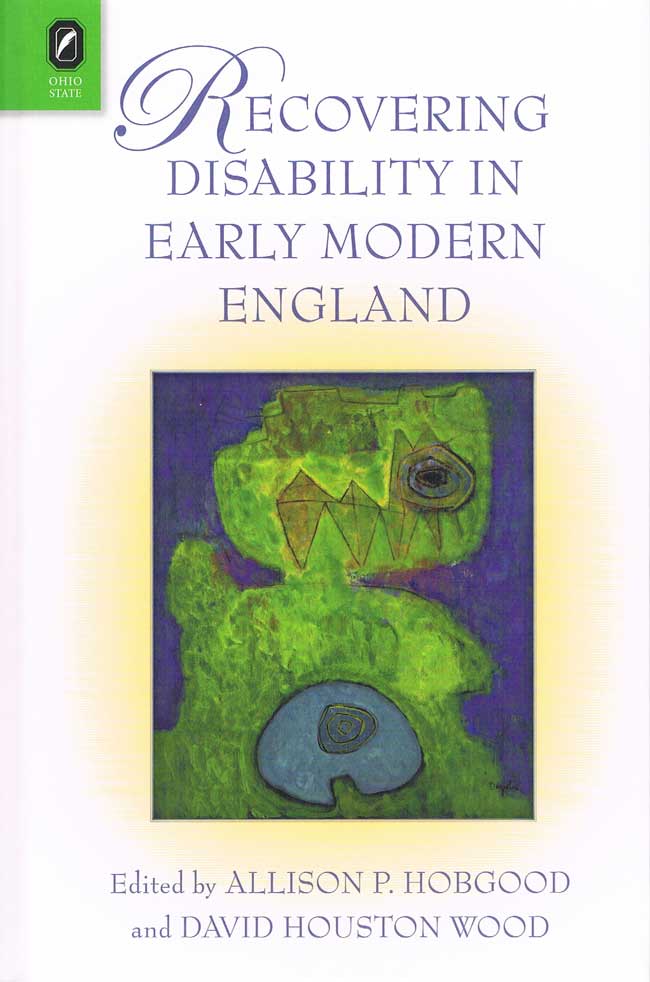Recovering Disability in Early Modern EnglandEdited by Allison P. Hobgood and David Houston Wood |
 5/1/2013 Literary Criticism/ 224 pp. 6x9  $52.95 cloth 978-0-8142-1215-8 Add cloth to shopping cart $14.95 CD 978-0-8142-9316-4 Add CD to shopping cart Shopping Cart Instructions Review/Change Shopping Cart & Check-out | |||
|
Explore More Clip from “Talk” by the Disability Rights Commission (UK) Rosemarie Garland-Thomson on Expanding the Concept of Accessible Technology |
“Recovering Disability in Early Modern England covers a wide variety of early modern texts and cultural occasions—from canonical writing by Spenser, Jonson, and Shakespeare to jest books, cheap-print ballads, and the Book of Common Prayer—in a series of strong readings, leading up to political theorist Nancy Hirschmann’s tour-de-force demonstration of just why this period is so important for thinkers about disability.” —Susan Schweik, professor of English, University of California, Berkeley “This well-conceived collection promises well to have a broad audience, not just of those interested in Renaissance literature and culture, but equally among the growing readership in disability studies, especially those interested in its cultural past.” —Christopher Baswell, Ann Whitney Olin Professor of English at Barnard College and Columbia University While early modern selfhood has been explored during the last two decades via a series of historical identity studies involving class, race and ethnicity, and gender and sexuality, until very recently there has been little engagement with disability and disabled selves in sixteenth- and seventeenth-century England. This omission is especially problematic insofar as representations of disabled bodies and minds serve as some of the signature features in English Renaissance texts. Recovering Disability in Early Modern England explores how recent conversations about difference in the period have either overlooked or misidentified disability representations. It also presents early modern disability studies as a new theoretical lens that can reanimate scholarly dialogue about human variation and early modern subjectivities even as it motivates more politically invested classroom pedagogies. The ten essays in this collection range across genre, scope, and time, including examinations of real-life court dwarfs and dwarf narrators in Edmund Spenser’s poetry; disability in Aphra Behn’s assessment of gender and femininity; disability humor, Renaissance jest books, and cultural ideas about difference; madness in revenge tragedies; Spenserian allegory and impairment; the materiality of literary blindness; feigned disability in Jonsonian drama; political appropriation of Richard III in the postcommunist Czech Republic; the Book of Common Prayer as textual accommodation for cognitive disability; and Thomas Hobbes’s and John Locke’s inherently ableist conceptions of freedom and political citizenship. Allison P. Hobgood (website) is assistant professor of English and a Women’s and Gender Studies Program
affiliate at Willamette University, Salem, Oregon. David Houston Wood (website) is associate professor of English
and Honors Program Director at Northern Michigan University, Marquette, Michigan. | |||

